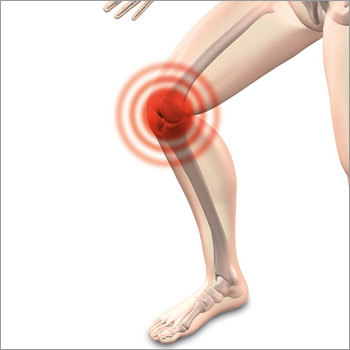FREE SHIPPING within Contiguous USA On Orders Over $49.

What is Runner's Knee?
Runner's Knee is the dull pain around the patella, also known as the kneecap, the flat, rounded triangular bone. This is where the knee connects with the lower end of the thigh bone.
What are the causes of Runner's Knee?
Runner's Knee can be caused by a structural defect, or a certain way of walking or running that causes damage to the knee. Other contributing factors include:
What are the symptoms of Runner's Knee
Common symptoms of Runner's Knee include:
How is Runner's Knee diagnosed?
The symptoms of Runner's Knee can look and feel like other knee conditions and knee health problems. As always, seek an opinion from your healthcare provider who can examine your knee, take X-rays if needed, discuss your knee health history, and make a diagnosis.
How is Runner's Knee treated?
There are several things to consider when treating Runner's Knees, such as your age, overall health, level of pain and discomfort you are experiencing, and how well medicines and therapies are working for you. The best course of treatment for Runner's Knee is to stop running until the pain goes away or is within a tolerable range. Other actions you can take for your Runner's Knee include:
Tips for Preventing Runner's Knee
There are many things that can be done to prevent Runner's Knee. Listed below are the tips that healthcare providers recommend:
Summary
Patellofemoral pain syndrome, more commonly known as Runner's Knee, is an overuse injury. Affecting as many as thirty percent of runners, it is the most common running-related injury. Like many aches and pains associated with athletics and sports related injuries, you can't go wrong using the RICE method. Rest. Ice. Compression. Elevation. For the compression member of this method, runners used to be limited to the use of tight wraps to achieve the benefits of compression. Nowadays, however, runners have many more products from which to get the benefits of compression. Increasingly, runners are opting for compression knee sleeves. They tightly hold the targeted area, increase blood pressure, and improve the circulation of the blood which results in better performance, prevention of swelling and inflammation, faster recovery, and prevention of injury. Best of all, compression knee sleeves are easy to put on and they don't come loose or fall down.